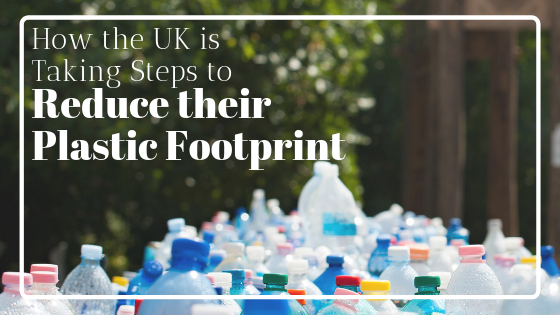For the UK and the rest of the world, the plastic epidemic is becoming a bigger issue each day. Countries are adopting recycling programs to help combat the irreversible effects of the neglect, but it is going to take monumental efforts to save our oceans. In 2014 alone, Britain produced almost 5 million tonnes of plastic waste. Of that plastic waste, only about 1 quarter of it was properly recycled. Fortunately, environmental stability has become a trend, gaining the awareness that it deserves to make a change. The UK is taking major steps to remove their plastic footprint in this plastic plague.
It appears that UK residents are now more conscientious as ever as to the importance of recycling and the effects of our impacts. However, the major issue seems to lie in the abundance of different types of plastic, and a lack of knowledge on what can and cannot be recycled. There are a wide variety of different types of plastic, from PET to PVC, and everything in between. Some plastic types are recyclable, while others are not.
To further complicate things, some plastics have to be recycled in a particular way as well. Luckily, the UK recognises this issue and understands the importance of changing plastic products to be able to be identified better. Signatories to the UK Plastics Pact are teaming up with plastic producers to help to achieve this goal of simplifying the labels. The UK hopes to have a majority of this goal achieved by 2025. There is also a proposed Circular Economy Package from the EU, which is dedicated to making changes to plastic that will ensure it is all recyclable by the year 2030.
Another way that the UK is trying to combat this recycling issue is by upgrading the technology that is used to sort plastic. Currently, the machinery used to sort plastics has some hiccups in identifying specific types of plastic as recyclable or not. Consumer goods mogul Procter & Gamble is leading an initiative that will add tracers and watermarks on plastic, making it easier for the infrastructure to identify the various types of plastic that will pass through to be sorted.
Furthermore, there is not a large market in the UK for turning plastic into recycled goods, rather fresh plastic is preferred to be used. This is a recognised issue that the UK government is looking to combat and change in the near future. The government is looking to potentially increase the tax on those who manufacture plastic packaging in an attempt to incentivise them to use recycled plastic more. Another change they are humoring is the current Extended Producer Responsibility scheme. This scheme proposes that manufacturers will be responsible for the total lifecycle of the plastic packaging that they produce and use for sale. They will assume all costs for recycling or disposing their plastic waste.
To say that we have a long road ahead of us is an understatement. However, the United Kingdom is finally acknowledging the major issue at hand and developing proposals and plans to combat our plastic impact on the world. It is a step in the right direction to saving our oceans and wildlife.
